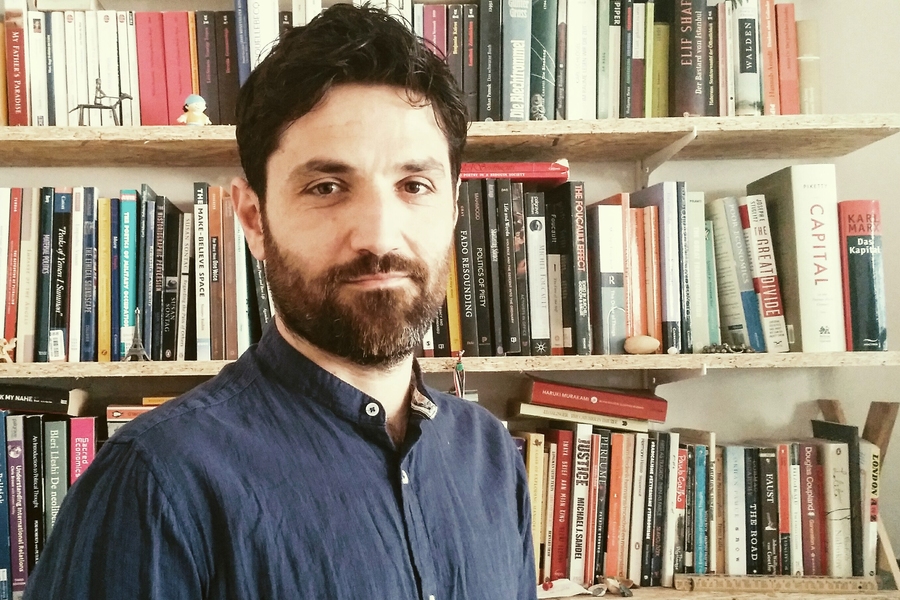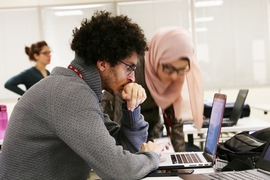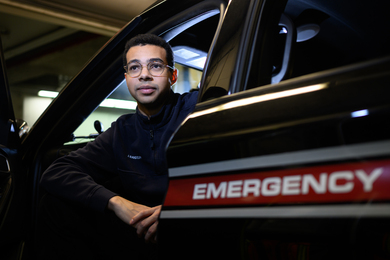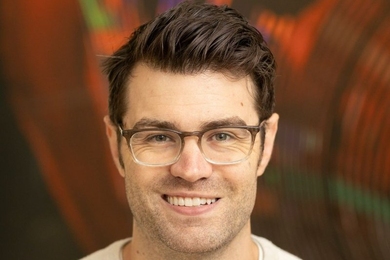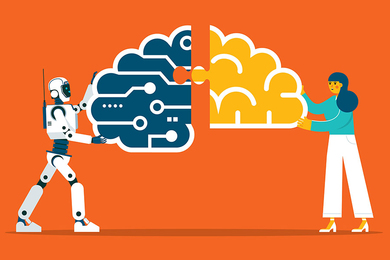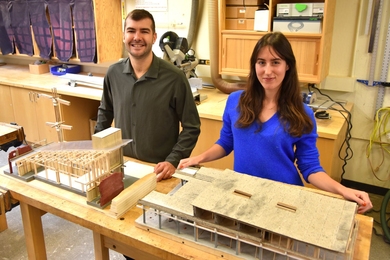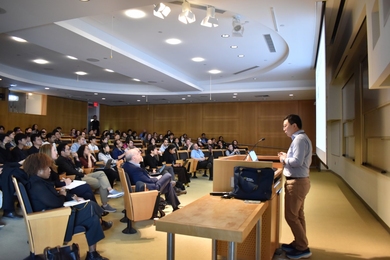It’s an ambitious goal: to change the status quo. Yet, this is just what Alan Al Yussef has set out to do. As one of the first people to earn the MITx Data, Economics, and Development Policy MicroMasters credential, he’s working to improve lives in the Middle East through a career in development economics.
For Al Yussef, poverty, corruption, and inefficient institutions are not just concepts or distant concerns. He knows issues like these directly impact the everyday lives of real people. Not long ago, he was one of those people.
He arrived in Belgium from Syria in 2008. Growing up, he recognized the need for new ideas and big changes in his country’s leadership and institutions and was motivated to do his part to help.
“Being born and raised in Syria and having lived for a few years in Iraq as well, I have firsthand experience of what it means to live in an underdeveloped country with dysfunctional institutions and widespread poverty,” he says. Yet corruption, lack of access to high-quality education, and disrupted communities have waylaid people like himself, who are motivated to mitigate such problems by entering public policy.
“Due to the widespread corruption and nepotism in the public institutions, people are faced with all kinds of wrong incentives,” he explains. “Be it a decision to start up a new business, expand [an] existing business, or getting credit, one must always account for the financial and psychological costs of corruption, which is a huge burden that impedes economic activity and slows down development.”
He knew that the field of economic development held many answers to the problems that Syria faced, so he set out to pursue a career in economics. As it turns out, that career path would take him over 2,000 miles away.
“I have always been curious about the dynamics of economic development, what makes countries and what breaks them,” he says. But it wasn’t until moving to Belgium, “where I reside now and where I hold refugee status, [that] I could finally enroll in university to pursue this goal.”
After earning a bachelor’s degree in applied economics, Al Yussef joined the Belgian Office of the Commissioner General for Refugees and Stateless Persons, where he worked as a translator and assisted in interpreting asylum applications and interviews. “I heard the stories of hundreds of refugees from different Middle Eastern and Arab countries, and all of them shared one thing: a desperation and lack of trust in the local institutions to guarantee a decent level of livelihood,” he recalls.
This desperation was one he knew well, and his desire for a career in development economics took on new urgency. Unfortunately, he says he could not find a Belgian university that offered a graduate program in development economics and again found himself searching for an education that didn’t seem accessible. Then he discovered the MITx Data, Economics, and Development Policy (DEDP) MicroMasters program.
“I got my hands on the book 'Poor Economics' by MIT professors Esther Duflo and Abhijit Banerjee, which got me excited about their work and their approach to the development question,” he recalls. He was excited to find some of the world’s best researchers doing the kind of work he wanted to do, such as the practical application of economics to real-world problems like those found in his native region. When he learned that Duflo and Banerjee, along with MIT economics Professor Benjamin Olken, had helped develop and co-direct an online program intended to do just that, he says he didn't hesitate for a moment and enrolled right away.
Now, less than a year later, he is among the first learners to earn the MITx DEDP MicroMasters credential in DEDP. Armed with this credential, he feels more prepared for the future and intends to use the credential as a springboard both academically and professionally.
Al Yussef is now finishing a Master’s degree in Applied Economics from the Vrije Universiteit Brussel in Belgium, and he says the knowledge he gained in the DEDP MicroMasters program will profoundly influence his upcoming thesis focusing on the role of democracy and institutions in economic development. His true interest, however, lies outside of applied business economics, as he is interested in pursuing a career in development economics. After finishing his current program, he intends to apply for the accelerated, blended Master’s degree in data, economics, and development policy at MIT.
“Having had the opportunity to follow the DEDP courses and knowing the quality of education offered by MIT, it will be an enormous personal achievement for me to complete the [residential] program and obtain the DEDP Master’s degree,” he says. In the meantime, “my plan is to work in the development sector starting next year and I am quite confident that the MicroMasters credential will be a great asset for me.”
To think beyond how things are and work toward how things could be, it takes courage and more than just a little commitment. Al Yussef has plenty of both, and through the power of education — whether in-person, online, or a blend of both — he’s tackling some of his country’s greatest challenges. Like Al Yussef, many learners enroll in the DEDP MicroMasters program motivated by the desire to be an informed citizen of the world and an effective ally to development communities.
Al Yussef's story illustrates the power that online learning can hold for refugee learners, whose education has stalled due to factors vastly outside their control. This summer, the DEDP MicroMasters program began partnering with ReACT, an organization at MIT that aims to connect refugees with opportunities in higher education. Together, the two organizations are providing refugee learners with access to all five of the DEDP online courses, in-person skills-building workshops, and paid internships with top organizations in the field.
Launched in Jordan in January, MIT ReACT Hub has successfully advanced its first cohort of participants through its blended learning Computer and Data Science certificate program. Enrollment for the DEDP MicroMasters fall semester starts on Sept. 11.
